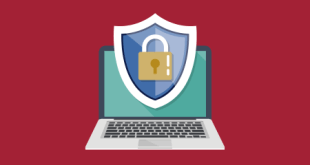If you notice that your PC has been acting a bit weird, it may have become infected with malicious software. Irrespective of whether the infection is partial or full, it’s always best to clean your PC using anti-virus and anti-spyware software. Here are some common symptoms that can help you identify that your PC has been infected with a malware.
Ads fill your screen: Adware programs take control of your screen and display a wide variety of advertisements. These are extremely irritating and will not allow you to focus on your work. Some adware programs can also have links to dubious websites that can be used to hack your computer.
Unknown browser redirects: Redirects can be legitimate, but if you are being redirected quite often, and especially for popular URLs such as Google, Facebook, Twitter, etc., it indicates that your PC is experiencing a redirection attack. The purpose is to direct you to a dangerous website, which can then be used to steal your private information. Redirection attacks are usually orchestrated through browser extensions, so check your browser and remove any doubtful extensions that may be there.
Your Facebook has posts that you did not post: Some malware are designed to infect your social media accounts such as Facebook. If you notice unknown posts on your social media account, it indicates that your PC may have been compromised.
Your PC is locked out: Ransomware has been in the news lately and these take complete control of your PC and its data. Your PC is locked out and a message is displayed on the screen, which asks you to pay ransom to unlock and decrypt your PC. If you notice anything like this, you may have to contact cybercrime officials.
System tools not working: Malware is designed to self-protect itself and they do it by disabling the system tools. You will not be able to stop/delete any suspected programs/services/applications on your PC. If you are unable to access system tools, it’s a sign that your PC is infected with malware.
Antivirus is switched off: If you notice that your anti-virus has been switched off on its own, it may indicate a malware infection. This is a self-preservation technique used by various malicious software programs.This usually happens when a completely new computer virus is released, which is immune to existing anti-virus database. Keeping your anti-virus software updated can help minimize the risk associated with emerging threats.
Malicious software programs have penetrated some of the most secure systems in the world, so your PC is always at risk of being infected. Always have a good anti-virus and anti-spyware software installed on your PC, so that you can avoid the hassles and financial losses associated with hacker attacks.
 Newspatrolling.com News cum Content Syndication Portal Online
Newspatrolling.com News cum Content Syndication Portal Online







